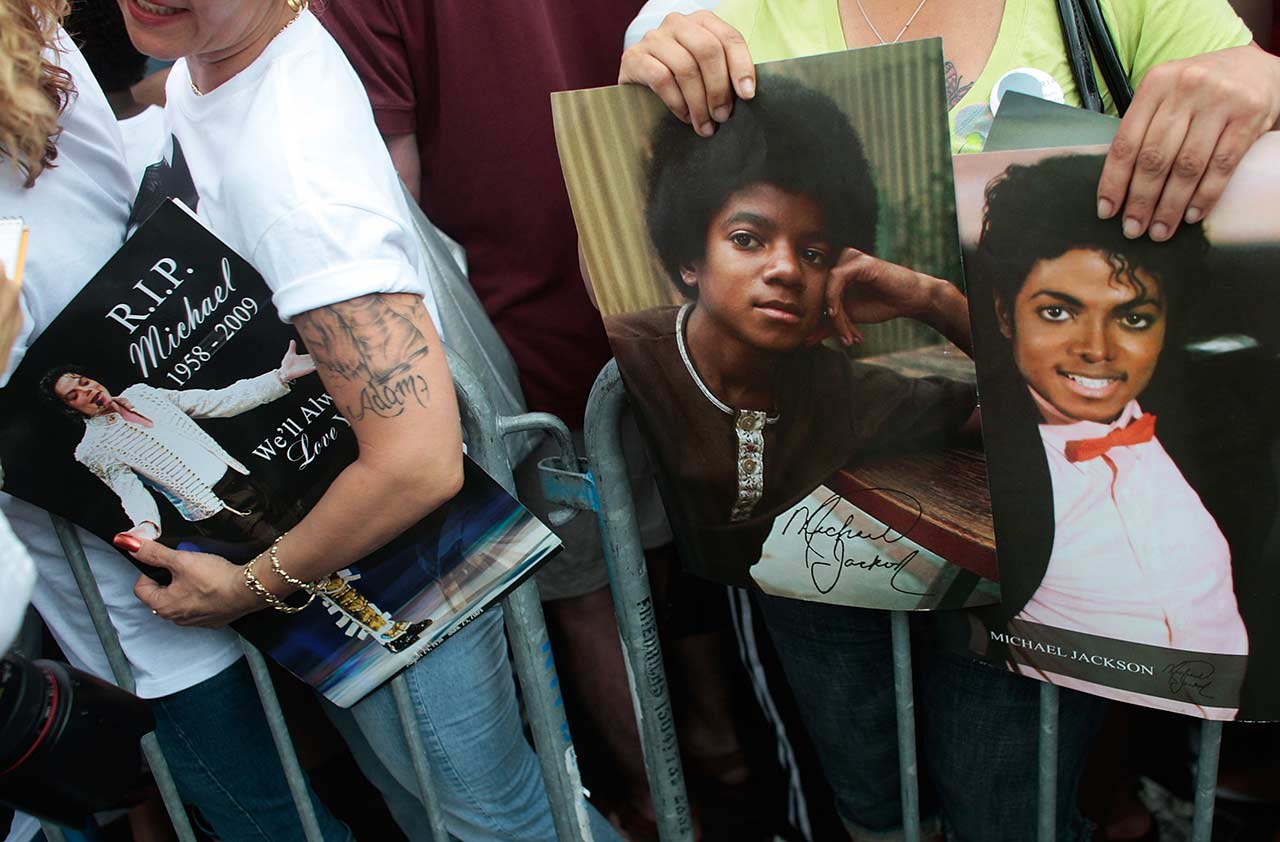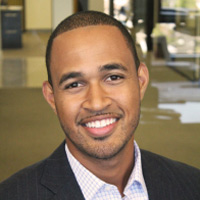Iconic Estate Flops: What Michael Jackson, Whitney Houston and Prince Did Wrong
Even the biggest stars with the best legal help available have made some major mistakes. Here's what the rest of us can learn about our own wills and estate plans from their famous troubles.


Profit and prosper with the best of Kiplinger's advice on investing, taxes, retirement, personal finance and much more. Delivered daily. Enter your email in the box and click Sign Me Up.
You are now subscribed
Your newsletter sign-up was successful
Want to add more newsletters?

Delivered daily
Kiplinger Today
Profit and prosper with the best of Kiplinger's advice on investing, taxes, retirement, personal finance and much more delivered daily. Smart money moves start here.

Sent five days a week
Kiplinger A Step Ahead
Get practical help to make better financial decisions in your everyday life, from spending to savings on top deals.

Delivered daily
Kiplinger Closing Bell
Get today's biggest financial and investing headlines delivered to your inbox every day the U.S. stock market is open.

Sent twice a week
Kiplinger Adviser Intel
Financial pros across the country share best practices and fresh tactics to preserve and grow your wealth.

Delivered weekly
Kiplinger Tax Tips
Trim your federal and state tax bills with practical tax-planning and tax-cutting strategies.

Sent twice a week
Kiplinger Retirement Tips
Your twice-a-week guide to planning and enjoying a financially secure and richly rewarding retirement

Sent bimonthly.
Kiplinger Adviser Angle
Insights for advisers, wealth managers and other financial professionals.

Sent twice a week
Kiplinger Investing Weekly
Your twice-a-week roundup of promising stocks, funds, companies and industries you should consider, ones you should avoid, and why.

Sent weekly for six weeks
Kiplinger Invest for Retirement
Your step-by-step six-part series on how to invest for retirement, from devising a successful strategy to exactly which investments to choose.
Michael Jackson, Whitney Houston and Prince were icons whose sudden deaths shocked the world and left their families brokenhearted and burdened with fees and estate taxes. Despite having professionals manage almost every aspect of their lives, none of these artists succeeded in implementing a comprehensive estate plan, costing the heirs millions of dollars in avoidable legal fees and taxes.
An estate plan is crucial for the peaceful transfer of assets from one generation to the next. While your estate probably doesn't include things like music rights or private amusement parks, you can glean key takeaways from each artist’s situation to avoid making the same costly mistakes.
Michael Jackson
Michael Jackson died in 2009, and the exact value of his estate is still being debated in tax court today. Jackson was prepared enough to leave a will, and his business-savvy attorney and executors parlayed the estate to an estimated $1 billion in value for his heirs.
From just $107.88 $24.99 for Kiplinger Personal Finance
Become a smarter, better informed investor. Subscribe from just $107.88 $24.99, plus get up to 4 Special Issues

Sign up for Kiplinger’s Free Newsletters
Profit and prosper with the best of expert advice on investing, taxes, retirement, personal finance and more - straight to your e-mail.
Profit and prosper with the best of expert advice - straight to your e-mail.
However, at the time of his death, Jackson’s executors valued the “Michael Jackson brand” — Jackson’s name and image — at a mere $2,105. Given the widespread merchandising of Jackson’s image since his death, the IRS claimed his name and image should’ve been valued at $434 million. The dispute over the value of assets could result in a $700 million estate tax bill.
Key Takeaways:
Valuating unique assets isn’t required to be 100% accurate, but if you’re going to guess, use common sense. Everyone knows facets of the Michael Jackson brand — his face, his name, the glove, the moonwalk, etc. — would sell more than $2,105 worth of goods and products. An estate tax filing should be representative of the value of a deceased person’s assets on the day of their death. If you have unique assets within your estate, such as intellectual property, patents, art or antiques, then it’s a good idea to have an accredited third-party appraisal completed.
One thing Jackson did exceptionally well was the strategic choice of executor of his estate: entertainment attorney John Branca and music executive John McClain, a pair with the professional experience needed to get the job done. A lesson to implement is choosing the executors of your estate with careful consideration. Don’t select a person for this role solely on kinship or relationship, but consider their résumé and skills. Analyze the nature of your assets and select a capable person who has experience with those types of assets. For example, if the majority of your wealth is tied up in real estate, than choose an executor with real estate experience. A combination of law, business and/or investment backgrounds is a great starting point.
Prince
Unlike Michael Jackson, Prince’s estate assets were valued appropriately and all necessary taxes were paid without any audits from the IRS. However, Prince left no will when he died.
Since he had no known children, there was no obvious heir. As a result, more than 45 people claimed to be potential heirs — including siblings, half-siblings, nieces and even supposed children — costing the estate tremendous amounts in legal fees.
Prince’s estate also suffered from the lack of a committed and capable executor. There’s been poor management and a revolving door of administrators (three to date). This has led to decreased asset value, and the estate has been unable to monetize the renewed interest in the artist.
Key Takeaways:
When an individual doesn’t have a traditional heir or offspring, there are many alternatives available, like nieces, nephews or even charities. The key is informing them while you are still alive of your intentions and goals. This gives them time to prepare and ask the right questions.
Although Prince’s estate had enough liquid assets to pay the estate tax and hasn’t been audited by the IRS, most estates have to sell assets in fire sales to pay the required estate tax. Make sure you have enough liquid assets to pay your estate tax if you’re over the exemption (which in 2018 will be $5.6 million per individual for federal tax purposes, although for states that impose taxes, it can be much lower). Immediately paying the tax reduces penalties and interest. A unique tool that provides liquidity at time of death is life insurance, whether it's personally owned or by an irrevocable life insurance trust.
Whitney Houston
Whitney Houston’s estate planning did include a will, establishing a sole heir — her daughter, Bobbi Kristina Brown — and contingent heirs. With heirs in place, the execution of the will would appear to be cut-and-dried. However, more than five years after Houston’s death, her estate is still being settled.
Houston’s will left her estate to her daughter, but it required the money to be doled out in installments at certain ages — 10% at age 21, 30% at age 25 and the remainder at age 30. The will also stipulated that if Bobbi Kristina Brown died childless and unmarried before age 30, the remaining estate would go to the contingent heirs, Houston’s brothers and mother. Brown passed away in July 2015 at age 22, leaving behind no will for her own estate, which included the 10% she had already received of Houston’s estate.
One might assume this would not be a problem, considering Houston named contingent heirs in case of her daughter’s death, but without her own will in place, Brown’s next-of-kin — her father, Bobby Brown — has a claim to inherit her entire estate. This has caused frequent disputes between the parties involved.
Key Takeaways:
When designing an estate plan, you have to honestly analyze and assess your heirs and relatives. You should be aware of potential conflicts with and between certain parties, as well as any special-needs planning required. Houston's estate would’ve been a perfect plan, but it didn’t account for the special needs of her daughter, even though Houston was aware she struggled with drugs.
One thing Houston’s estate did well was the level of detailed language her trust had regarding when and the amount of assets set to be disbursed. Having specific language like this removes the need for interpretation and reinforces your intentions, values and goals for your heirs.
The Importance of Estate Planning
Establishing a complete estate plan, with a trust, will and qualified executors, is an important part of legacy planning. While most people do not have future royalties accruing and image rights to worry about, proper estate planning provides peace of mind, reduces intra-family feuding and saves money in terms of taxes, penalties and legal fees. Learn from the mistakes of these iconic stars, and start your estate planning today.
Profit and prosper with the best of Kiplinger's advice on investing, taxes, retirement, personal finance and much more. Delivered daily. Enter your email in the box and click Sign Me Up.

Justin Brimmer, CFP®, CAP®, is a wealth planner at Miracle Mile Advisors, an independent registered investment adviser in Los Angeles. He advises clients on matters of complex wealth protection strategies. He works holistically with individuals and families to create customized plans that integrate portfolio construction, risk management and legacy planning.
-
 Quiz: Do You Know How to Avoid the "Medigap Trap?"
Quiz: Do You Know How to Avoid the "Medigap Trap?"Quiz Test your basic knowledge of the "Medigap Trap" in our quick quiz.
-
 5 Top Tax-Efficient Mutual Funds for Smarter Investing
5 Top Tax-Efficient Mutual Funds for Smarter InvestingMutual funds are many things, but "tax-friendly" usually isn't one of them. These are the exceptions.
-
 AI Sparks Existential Crisis for Software Stocks
AI Sparks Existential Crisis for Software StocksThe Kiplinger Letter Fears that SaaS subscription software could be rendered obsolete by artificial intelligence make investors jittery.
-
 Social Security Break-Even Math Is Helpful, But Don't Let It Dictate When You'll File
Social Security Break-Even Math Is Helpful, But Don't Let It Dictate When You'll FileYour Social Security break-even age tells you how long you'd need to live for delaying to pay off, but shouldn't be the sole basis for deciding when to claim.
-
 I'm an Opportunity Zone Pro: This Is How to Deliver Roth-Like Tax-Free Growth (Without Contribution Limits)
I'm an Opportunity Zone Pro: This Is How to Deliver Roth-Like Tax-Free Growth (Without Contribution Limits)Investors who combine Roth IRAs, the gold standard of tax-free savings, with qualified opportunity funds could enjoy decades of tax-free growth.
-
 One of the Most Powerful Wealth-Building Moves a Woman Can Make: A Midcareer Pivot
One of the Most Powerful Wealth-Building Moves a Woman Can Make: A Midcareer PivotIf it feels like you can't sustain what you're doing for the next 20 years, it's time for an honest look at what's draining you and what energizes you.
-
 I'm a Wealth Adviser Obsessed With Mahjong: Here Are 8 Ways It Can Teach Us How to Manage Our Money
I'm a Wealth Adviser Obsessed With Mahjong: Here Are 8 Ways It Can Teach Us How to Manage Our MoneyThis increasingly popular Chinese game can teach us not only how to help manage our money but also how important it is to connect with other people.
-
 Looking for a Financial Book That Won't Put Your Young Adult to Sleep? This One Makes 'Cents'
Looking for a Financial Book That Won't Put Your Young Adult to Sleep? This One Makes 'Cents'"Wealth Your Way" by Cosmo DeStefano offers a highly accessible guide for young adults and their parents on building wealth through simple, consistent habits.
-
 Global Uncertainty Has Investors Running Scared: This Is How Advisers Can Reassure Them
Global Uncertainty Has Investors Running Scared: This Is How Advisers Can Reassure ThemHow can advisers reassure clients nervous about their plans in an increasingly complex and rapidly changing world? This conversational framework provides the key.
-
 I'm a Real Estate Investing Pro: This Is How to Use 1031 Exchanges to Scale Up Your Real Estate Empire
I'm a Real Estate Investing Pro: This Is How to Use 1031 Exchanges to Scale Up Your Real Estate EmpireSmall rental properties can be excellent investments, but you can use 1031 exchanges to transition to commercial real estate for bigger wealth-building.
-
 Should You Jump on the Roth Conversion Bandwagon? A Financial Adviser Weighs In
Should You Jump on the Roth Conversion Bandwagon? A Financial Adviser Weighs InRoth conversions are all the rage, but what works well for one household can cause financial strain for another. This is what you should consider before moving ahead.